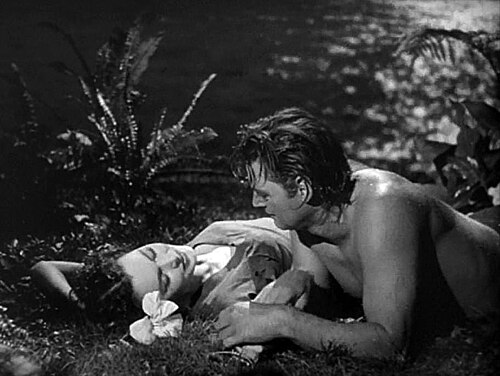
Word of the Day: Laconic
Today’s word of the day, courtesy of Words Coach (https://www.wordscoach.com/dictionary), is laconic. Pronounced / ləˈkɒn ɪk /, with the stress on the second syllable, laconic is an adjective that means “using few words; expressing much in few words; concise” (https://www.dictionary.com/browse/laconic).
According to Etymonlin.com, the word entered the English language in the “1580s, literally ‘of or pertaining to the region around ancient Sparta’ in Greece, probably via Latin Laconicus ‘of Laconia,’ from Greek Lakonikos ‘Laconian, of Laconia,’ adjective from Lakon ‘person from Lakonia,’ the district around Sparta in southern Greece in ancient times. The Spartans famously cultivated the skill of saying much in few words. When Philip of Macedon threatened them with, ‘If I enter Laconia, I will raze Sparta to the (https://www.etymonline.com/search?q=laconic). The website then quotes Herodotus: “When the Samians who had been banished by Polycrates came to Sparta, they went to the authorities and made a long speech, in view of the greatness of their need. At the first meeting, the Spartans said in answer that they had forgotten the first words of the request and could not understand the last. After that, the Samians had another meeting with the Spartan government, and this time they said nothing but, carrying an empty sack, said simply, ‘The sack needs grain.’ At this the Spartans answered, ‘You did not need to say “sack.”’ But they resolved to help the exiled Samians. [Herodotus, transl. David Grene]” (ibid.).
On this date in 1922, according to On This Day, “American swimmer Johnny Weissmuller first to break 1 minute barrier for 100m freestyle; swims 58.6s at Alameda, CA” (https://www.onthisday.com/events/july/19).
“Johann Peter Weißmüller was born on June 2, 1904, in Szabadfalva, in the Kingdom of Hungary, Austria-Hungary (now part of Romania, and called Freidorf) into an ethnically Banat Swabian family” (https://en.wikipedia.org/wiki/Johnny_Weissmuller). He came to the USA with his parents before his first birthday, and he grew up in Pennsylvania and then Chicago. “At age nine, Weissmüller contracted polio. His doctor recommended swimming to help his recovery from the disease. Fullerton Beach on Lake Michigan is where Johnny’s love for swimming took off, having his first swimming lessons there. He excelled immediately and began entering and winning every race he could…. When Weissmuller was 11 he lied to join the YMCA, which had a 12 year old minimum rule to join. He won every swimming race he entered and also excelled at running and high jumping. Before long he was on one of the best swim teams in the country, the Illinois Athletic Club” (ibid.).
In two Olympic games, Weissmuller won five gold medals. He also won a bronze medal in 1924 as a member of the US water polo team. He “set 67 world records. He was the first man to swim the 100-meter freestyle under one minute and the 440-yard freestyle under five minutes. He never lost a race and retired with an unbeaten amateur record. In 1950, he was selected by the Associated Press as the greatest swimmer of the first half of the 20th century” (ibid.).
But if you’re an amateur swimmer in the 1920s, you’re not making millions through advertisements. What do you do? At first, Weissmuller became a swimming instructor. But then, something happened. He got a non-speaking part in a film called Glorifying the American Girl, playing Adonis. “He was noticed by the writer Cyril Hume, which led to his big break playing Tarzan in Tarzan the Ape Man in 1932. When asked to play Tarzan, Weissmuller was already under contract to model BVD underwear. MGM agreed to have actresses such as Greta Garbo and Marie Dressler featured in BVD ads so that he could be released from his BVD contract. The author of Tarzan, Edgar Rice Burroughs, was pleased with Weissmuller, although he so hated the studio’s depiction of Tarzan as an individual who barely spoke English that he created his own concurrent Tarzan series starring Herman Brix as a suitably articulate version of the character (as is true to the original books)” (ibid.).
I watched these movies on Saturday afternoons growing up, when the only kid-friendly television on a Saturday afternoon was movies like the Tarzan movies. The character is “the most filmed character in movie history… the subject of 52 movies (including animantion features), 7 television series, 2 Broadway plays and thousands of publications and licensed products” (https://tarzan.com/movies-television/). In the 1960s there was a somewhat long-running TV series starring Ron Ely.
But for me, and I would guess for most people of my generation, Johnny Weissmuller is Tarzan. “Weissmuller is considered the definitive Tarzan. He originated the famous Tarzan yell, which was created by sound recordist Douglas Shearer. Shearer recorded Weissmuller’s normal yell, but manipulated it and played it in reverse” (https://en.wikipedia.org/wiki/Johnny_Weissmuller). But in addition to the yell, there was his talking: “Me Tarzan, you Jane.” Perhaps what sold us in Weissmuller’s Tarzan was that in a universe of chatty people, he was laconic.
Today’s image is of “Weissmüller (Tarzan) with Maureen O’Sullivan (Jane) in Tarzan’s Secret Treasure” (ibid.).